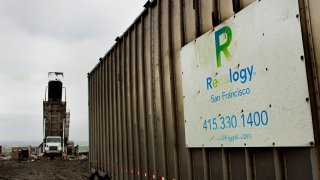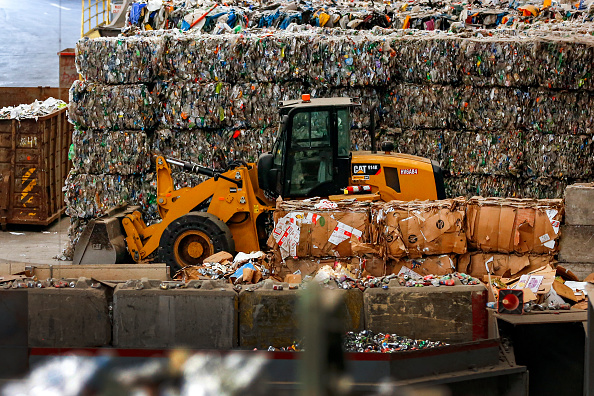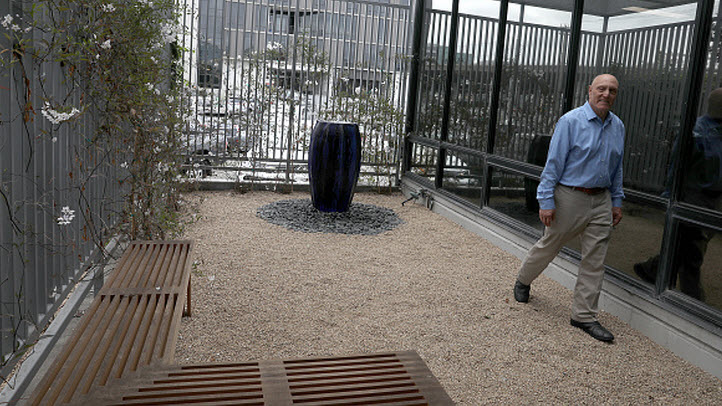
An unpermitted San Francisco asphalt and concrete recycling facility - highlighted by NBC Bay Area’s Investigative unit as posing health concerns for a nearby COVID-19 homeless shelter - has been ordered shut down for good by local air quality regulators.
Recology’s Sustainable Crushing voluntarily stopped operating its Pier 94 facility back in 2021, after NBC Bay Area reported the potential risk to residents who were being housed in trailers as part of the city's response to the COVID-19 pandemic.
The surrounding area includes not only Recology’s operation but several concrete batch plants. Air quality regulators have identified the area on maps as having elevated levels of extremely fine dust particles, known as PM 2.5 particulates. Air quality officials say the tiny particles – measuring less than 1/30th the thickness of human hair -- have been linked to everything from asthma to lung cancer.
After NBC Bay Area's story ran in 2021, city officials said they would meet with air quality management officials about any dust concerns.
Get a weekly recap of the latest San Francisco Bay Area housing news. Sign up for NBC Bay Area’s Housing Deconstructed newsletter.
Soon, air quality officials vowed to crack down on dust pollution around the shelter and gave out air purifiers to shelter residents. Later, Recology voluntarily stopped operations at the plant it had been using for a decade - despite not having a local permit.
Bay Area Air Quality's executive officers said in a statement that the newly issued final shutdown order was in response to a "clear violation of our rules” and “a clear demonstration of the Air District’s commitment to protect the health and well-being of Bayview Hunters Point residents."
As for the debate over the lack of a local permit - Recology says it obtained state permits and was operating legally on the site. Recology is also the city’s waste hauler despite being mired in a public corruption scandal and refunding nearly $100 million in overcharges.
With the facility now formally shut down, regulators have ordered that trucks removing any stockpiled materials have their loads covered, obey speed limits and take other measures to limit dust.
An activist who pushed for the plant's closure says, while they welcome the shutdown order, regulators need to do more for shelter residents.
"They really need to calculate the health impact on these people living there for two to three years with all the dust,” said Ray Tompkins, an environmental activist in the Hunters Point-Bayview community, “This is a good first step, but long overdue."
Tompkins had measured elevated dust levels surrounding the COVID-19 shelter.



